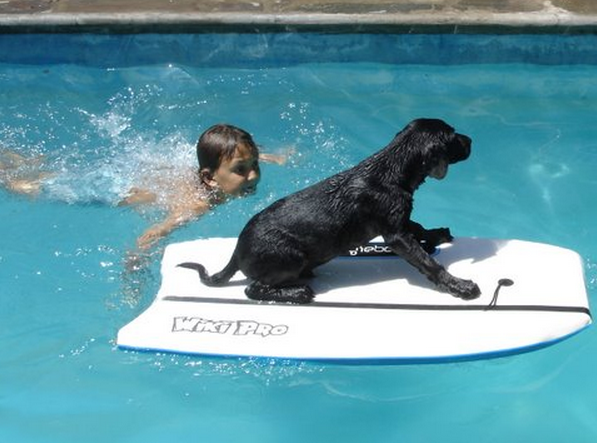In Argentina, this week started with alerts in different provinces due to a significant heatwave. In this sense, besides taking the necessary precautions to take care of your health, it is also essential to take care of your pets and keep them hydrated.
This is to, just like with humans, prevent heat strokes, cases of dehydration, and various health complications.
Heatwave: how to protect pets
Just like humans, animals can suffer the consequences of extreme heat, especially considering they are not used to these high temperatures that can reach up to 39 degrees.
That’s why they should also protect themselves from the sun in summer. There are some recommendations that can be followed to ensure proper care.
Therefore, they are at risk of having a heat stroke in extreme temperatures.
 How to protect pets from heat.
How to protect pets from heat.
Tips to care for your pets
- Avoid the strongest sun hours for walks: go out in the morning or once the sun sets, and keep the walks short.
- Keep them hydrated: make sure they always have fresh and clean water within reach.
- It is recommended to use sunscreen suitable for animals, if available, to protect them from the sun.
- Avoid excessive exercise or games that require a lot of physical effort: it is important to prevent them from getting too excited, as they will heat up without being aware of it.
- If they are in the yard or garden of your house, make sure they have a shaded area and a mat to lie on to avoid the heat from the ground.
- If they have a kennel: make sure it is cool and well-ventilated at all times.
- During the hottest hours, dampen them with a little water on the belly or back, as these areas are the most sensitive to cool them down. Alternatively, repeat this at intervals to ensure they stay cool.
What to do at the beach
 In the face of extreme heat, ensure that pets stay cool.
In the face of extreme heat, ensure that pets stay cool.
If your pet accompanies you to the beach, in addition to keeping them hydrated, it is important for them to stay in the shade, especially during the hours when the sun is most intense.
Also, make sure they do not drink seawater or consume sand to avoid digestive problems. The sand tends to heat up due to the sun, so it is important to use a blanket or mat for them to lie on.
Furthermore, avoid letting them walk for a long time on the sand or asphalt, as their paw pads could get burned due to the temperature. Once the beach day is over, bathe or rinse them with plenty of water to remove excess sand and salt.

